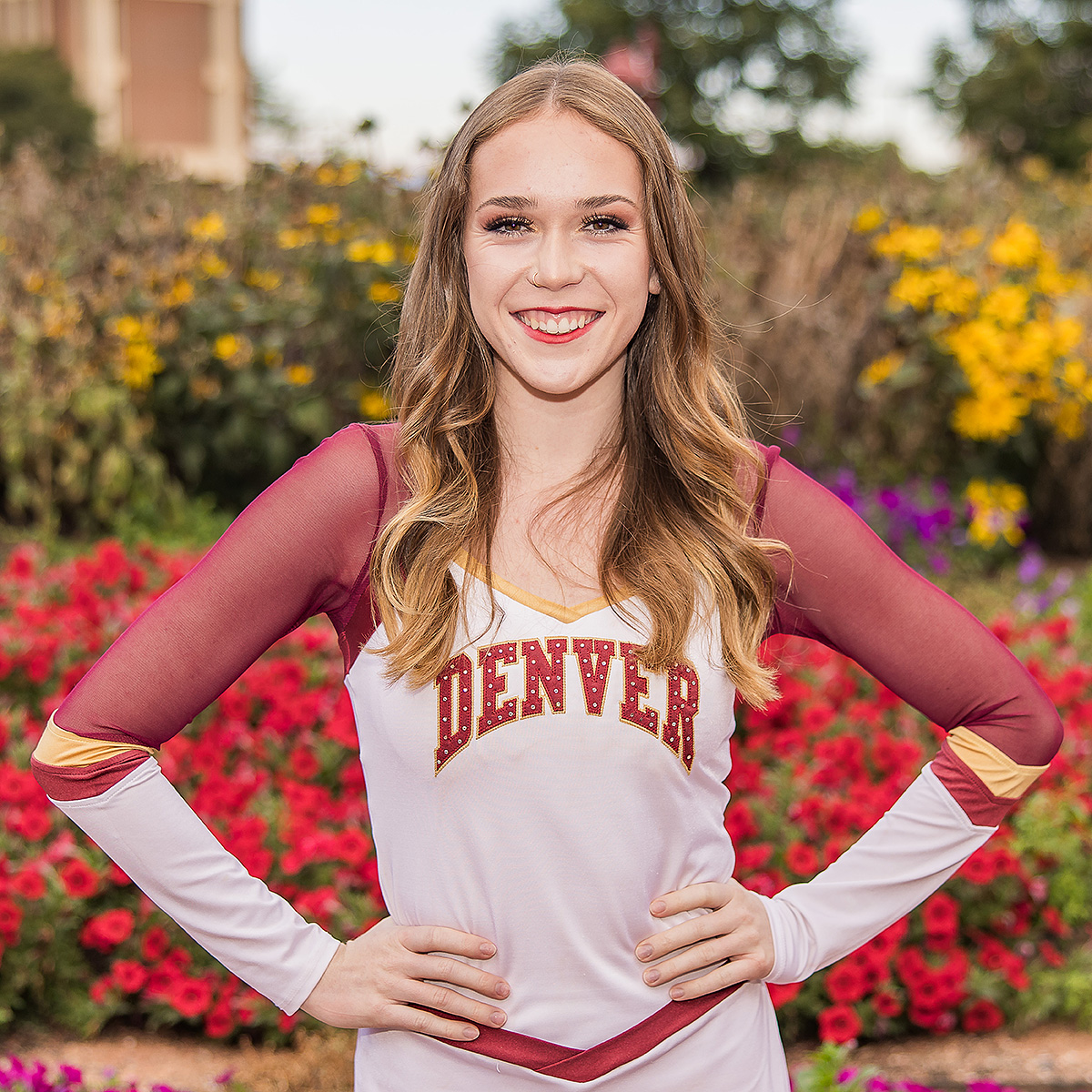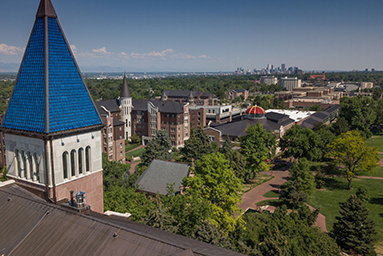Dancing for Inclusion: How Undergraduate Kinesiology Student Maia Adler is Making Sport More Inclusive
Can you tell me a bit about yourself?
My name is Maia, and I am currently a senior at the University of Denver where I am majoring in psychology while double minoring in kinesiology and sport studies and wellness. I have been dancing since I was three years old, and I am very fortunate to be a captain for the University of Denver dance team. Dance has led me to many different opportunities, one of which has been improving accessibility to dance for people with disabilities.
How did you discover you were interested in working with people with disabilities?
When I was in nine, I met my best friend who happens to live her life from a wheelchair due to Cerebral Palsy. In elementary school, I started to attend her adaptive horseback riding and soccer practices. I fell in love with the work, so I started volunteering with different organizations in my community in Northern California. Through this, I was able to spend my weekends with my best friend and her teammates. From there, I started to realize that this work made me incredibly happy. I then started to shadow Occupational Therapists and go to my best friend’s therapy sessions. Occupational Therapy is a field of work that aims to help people with daily activities and daily living. After I realized being an Occupational Therapist might not be the path I wanted to go, I started to take more of an interest in dance therapy.
As I moved into high school, I worked with my dance teachers to start an adaptive dance class for both people in wheelchairs as well as young kids with Autism, and I knew I never wanted to stop. It was extremely special to me that I got to spend my weeks putting smiles on the faces of others while also feeling like this was something I was made to do.
Can you tell me about some of the work you’re currently doing?
I currently volunteer with the Rocky Mountain Down Syndrome Association. The class that I volunteer with is called Higher Visions of Education (HVE). HVE is an educational program designed to enrich the lives of people living with down syndrome. In the class, we explore a range of topics to improve life skills such as safety, health (physical, emotional, and mental), hygiene, decision-making skills, assertiveness, self-advocacy, independence, time management, identification of needs and desires, community access, and the development of resources and support systems. While helping with this course, I’ve witnessed individuals increase their independence and self-esteem, as well as improved social and community involvement.
Have you been able to bring dance into your work with Rocky Mountain Down Syndrome Association?
Yes, each quarter the HVE class comes to the University of Denver dance studio on campus, and our University of Denver Dance teams spends the night learning new dances and having dance parties! This has been a great experience for members of our dance team and the adults within HVE course. Through these dance classes, we have been able to foster new relationships, connect to Denver’s community, and meet new people!
Wow! That’s great to hear. Do you have any plans for future events with Rocky Mountain Down Syndrome Association?
As of right now, I am planning on creating a field day in spring of 2024. I hope to plan a day where all of Denver’s Club Sports and athletics can pair with Rocky Mountain Down Syndrome to meet new people, learn new games and sports, and spread awareness to promote inclusion for people with disabilities. The goal is to have as many people as we can come out in order to support this organization. We will sell food, t-shirts, play games, have dance parties, and raise money in order to donate to the Rocky Mountain Down Syndrome Association. There will hopefully be more details to come!
Based on your experiences, what are some strides we’ve taken to make sport and dance more inclusive for people with disabilities? What are some areas we need to get better?
As I have grown up and involved myself in the world of adaptive sports, I can see a big difference in the way people across different communities interact with people with disabilities. For example, I had never heard of a dance studio that was completely dedicated to students with disabilities when I was younger, but now I know of a few. There are adaptive basketball teams, blind football teams, wheelchair dance companies, bowling teams for adults with Down Syndrome, and more. Getting the chance to see some sports become more inclusive makes me incredibly happy.
It can be difficult to see all of the work that still needs to be done when you are not immersed in this world or community. For example, I was not aware of the fact that my best friend had to roll around the block to get to the store that was across from her house, simply because there was no curb cut present. This is a perfect example of work that still needs to be done, and work that can be hard to see unless you are involved in this world. It takes some thinking outside of the box for an able-bodied person to see our world with this lens, but these are struggles that my best friend and others deal with every single day.
How has the kinesiology and sport studies program contributed to your interest/expertise in this area?
The kinesiology and sport studies program at the University of Denver has helped me think of new ways to spread awareness. When I took the Foundations of Kinesiology course and DEI in Kinesiology course, I was tasked with looking at different ways in which I could get involved in communities that are historically marginalized or oppressed. These courses have challenged my ways of thinking and asked me to think outside of the box. By this I mean that I have learned new terms and concepts and have been inspired to see how I can make even more of a difference in the Denver community.
What are you plans after graduation? Do you want to work in this sector?
Although I don’t know exactly what I will be doing after college, I know it will involve working with people from these populations. At the end of the day, volunteering with Rocky Mountain Down Syndrome Association has helped me realize that this is what I want to do after college. Spending time with their students has been one of the highlights of my college experience. After college, I hope to obtain my master’s degree in social work in hopes to continue this work. Whether this means as a dance therapist, working within the Special Olympics, or getting more involved in organizations like the Rocky Mountain Down Syndrome Association, I am very excited to see what the future holds!
I know you’re going to continue to great things, Maia. Thanks for taking the time to talk with me today.
Links:
- Rocky Mountain Down Syndrome Association: https://www.rmdsa.org/
- University of Denver undergraduate Bachelor of Arts in Kinesiology and Sport Studies: https://psychology.du.edu/academics/kinesiology-and-sport-studies



